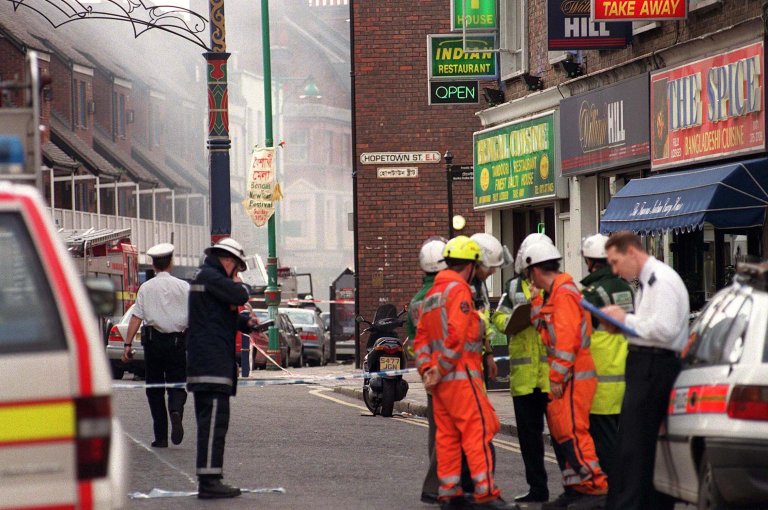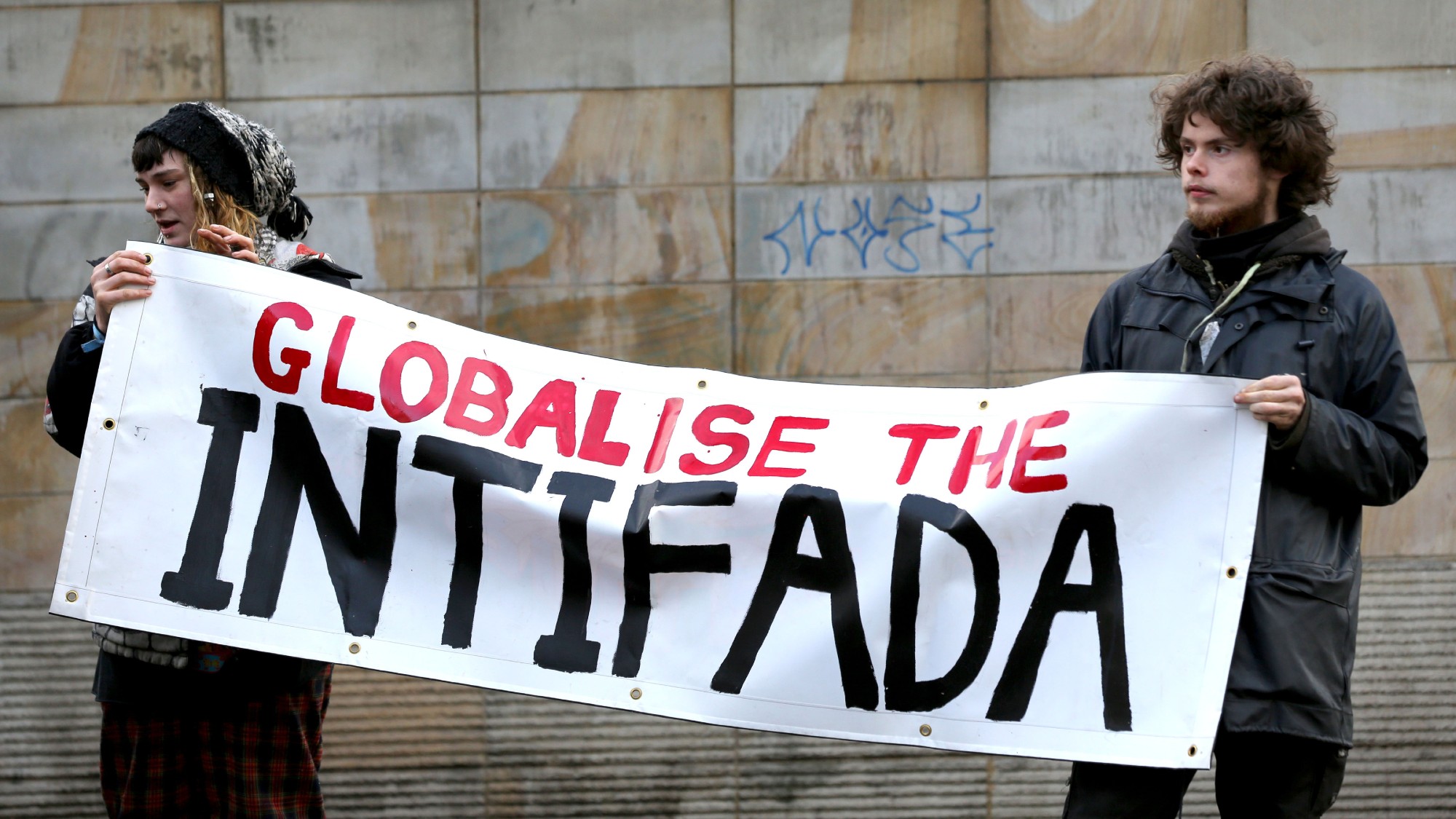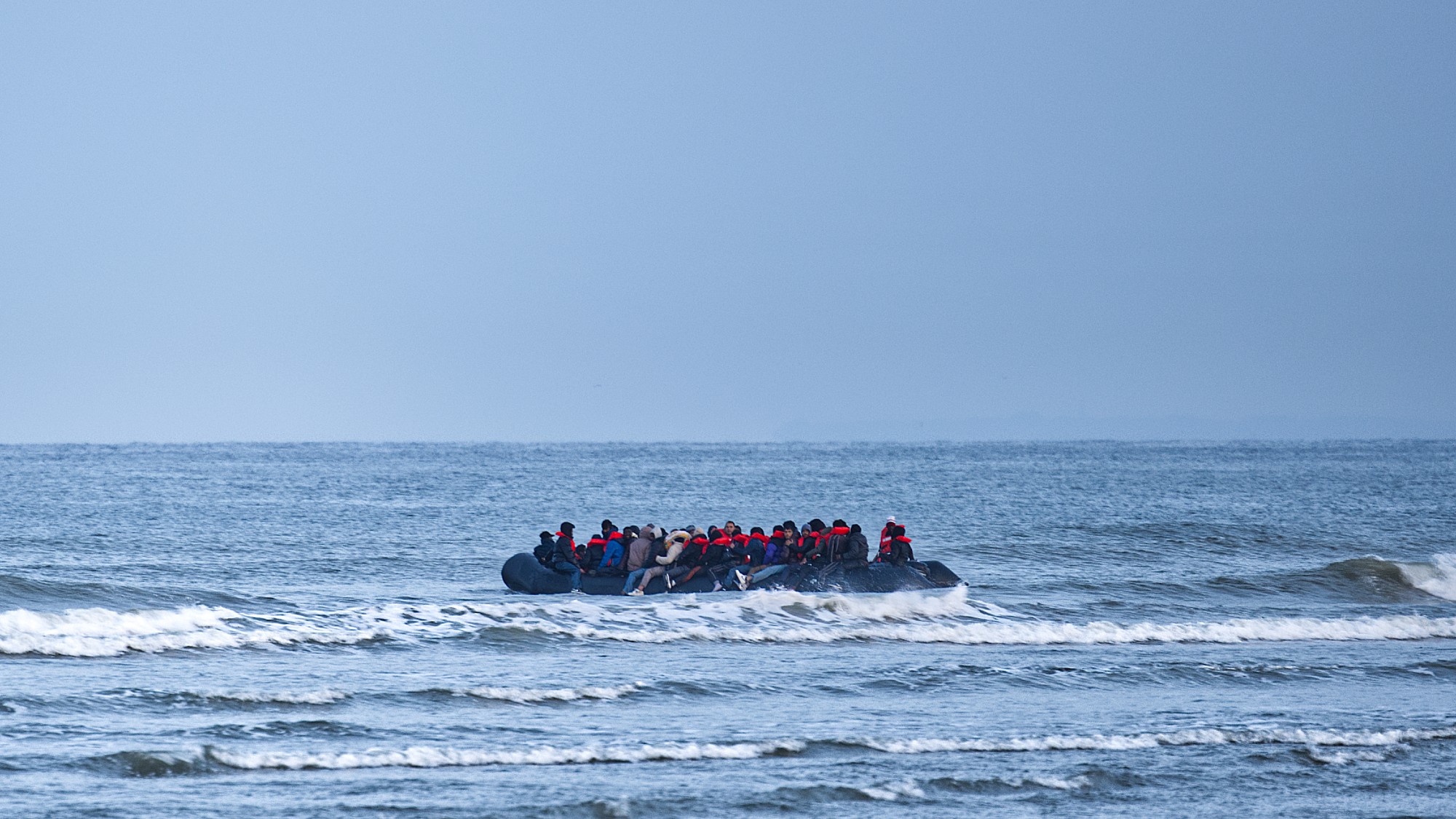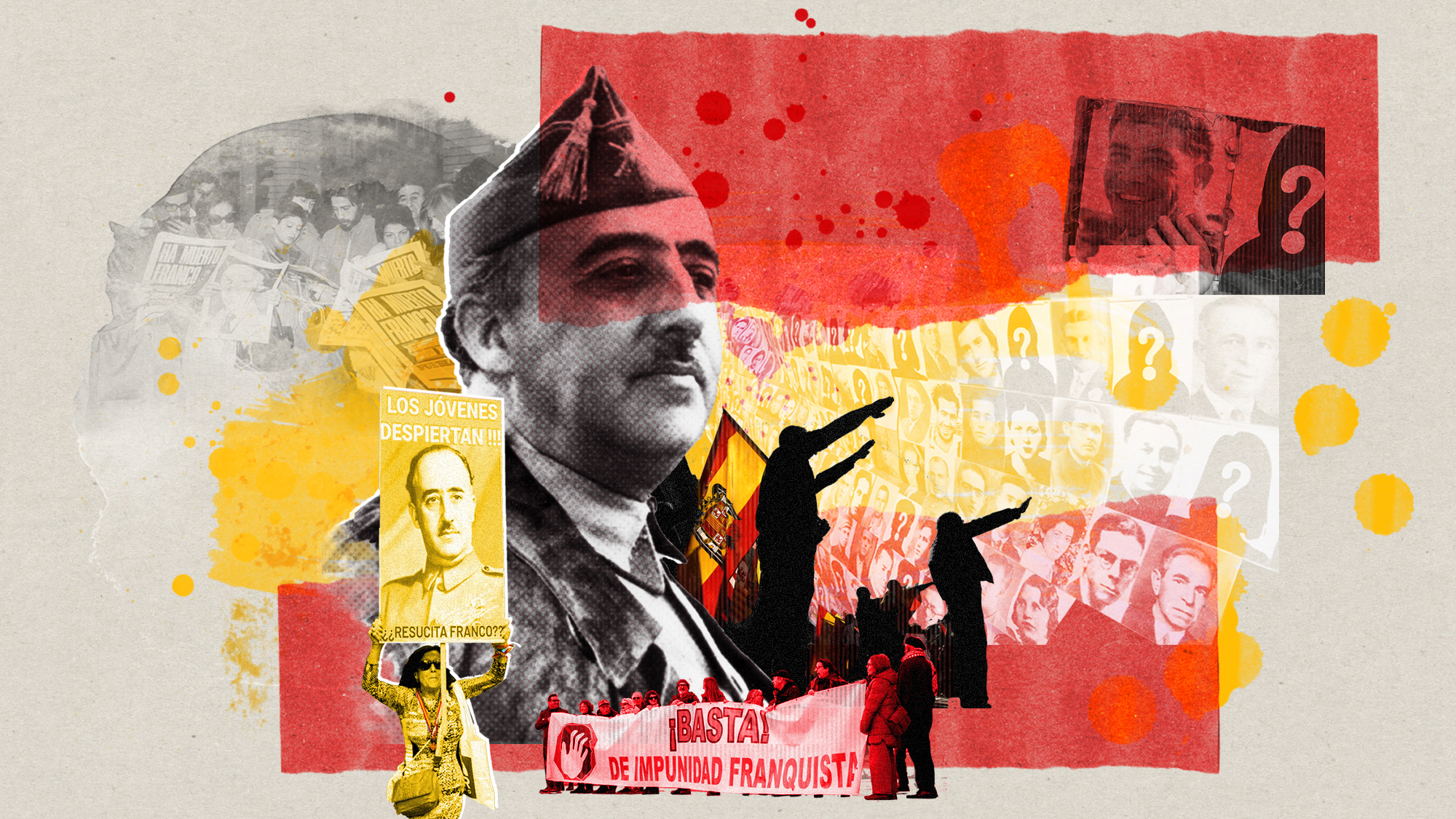The London nail bombings, 20 years on
Series of bombs targeting the capital’s black, Bangladeshi and gay communities were UK's deadliest neo-Nazi attacks

A free daily email with the biggest news stories of the day – and the best features from TheWeek.com
You are now subscribed
Your newsletter sign-up was successful
Twenty years ago, the UK experienced the deadliest far-right atrocity in the nation’s history - the London nail bombings.
On three consecutive weekends in April 1999, hidden bombs were detonated in Brixton, Brick Lane and Soho targeting London’s gay, black and Bangladeshi communities. Each bomb was filled with up to 1,500 nails and placed in a nondescript black holdall.
In total, three people were killed – including 27-year-old Andrea Dykes, who was four months pregnant – and 140 people were injured, four of whom lost limbs.
The Week
Escape your echo chamber. Get the facts behind the news, plus analysis from multiple perspectives.

Sign up for The Week's Free Newsletters
From our morning news briefing to a weekly Good News Newsletter, get the best of The Week delivered directly to your inbox.
From our morning news briefing to a weekly Good News Newsletter, get the best of The Week delivered directly to your inbox.
Three days after the third bombing, the Metropolitan Police’s anti-terror squad charged 22-year-old David Copeland with murder. Copeland was a neo-Nazi militant, a former member of the British National Party who had recently become a regional leader of the National Socialist Movement, a neo-Nazi organisation with links to far-right terror group Combat 18.
This week, the BBC’s Newsnight programme looked back at the attacks and the rise of far-right terrorism in the UK.

What happened?
The first attack took place on Saturday 17 April 1999 in Brixton, south London, long home to a large black population. The bomb, made using explosives from fireworks, was taped inside a sports bag and left at Brixton Market.
A free daily email with the biggest news stories of the day – and the best features from TheWeek.com
The explosion outside an Iceland supermarket at 5.26pm “sent nails flying in all directions as Saturday shoppers, including families with young children, milled around the market”, reported The Observer at the time. The windows of shops and a passing bus were blown out and shoppers knocked down. A total of 48 people were injured, but no one was killed.
Immediately after the bomb in Brixton, “a sense of foreboding” fell over Brick Lane – the heart of London’s Bangladeshi community, said The Independent. “Phone calls and letters warned local Bangladeshi-born businessmen and community leaders: ‘You are next’”, the newspaper added.
And on the following Saturday, 24 April, a Brick Lane resident noticed an unattended black holdall in the street. Finding the nearest police station closed, he put the holdall in the boot of his car and prepared to call 999. Moments later, the bomb went off. Thanks to the man’s intervention, only seven people were injured.
Later that day, the police received their first tip-off when “a 999 call was made from New Malden, southwest London, claiming [neo-Nazi terrorist organisation] Combat 18 was responsible”, said The Independent.
After two bombings on consecutive Saturday afternoons, “detectives were certain that the London nail bomber would strike a third time”, reported The Daily Telegraph.
Indeed, the final bomb was detonated the following Friday evening inside The Admiral Duncan pub on Old Compton Street in Soho, a traditional haunt for the capital’s gay community. The pub was crowded as revellers celebrated the start of a bank holiday weekend, and this attack was the most devastating of the three, killing three people and injuring a further 76.
Who was David Copeland?
Four far-right groups initially vied to claim responsibility for the attacks: Combat 18, White Wolves, the English National Party and the English Liberation Party. But eventually the Metropolitan Police sourced CCTV footage from the Iceland supermarket in Brixton, where the first bomb had gone off, showing a young man with a white baseball cap carrying the black holdall.
Publication of the image “prompted a number of calls, one of which was to identify David Copeland”, reported the Daily Telegraph. On 2 May 1999, Copeland was arrested in his bedroom where he “had the ingredients for his fourth bomb ready”, added the newspaper.
Following his arrest, Copeland told police he wanted the bombings to “set fire to the country and stir up a racial war”. According to the BBC, when asked why he had targeted ethnic minorities, he replied: “Because I don’t like them, I want them out of this country, I believe in the master race”.
On 30 June 2000, Copeland was convicted of three counts of murder and planting bombs and given six concurrent life sentences. In 2015 he was sentenced to three additional years in prison for attacking a fellow inmate.
What has the legacy been?
Some commentators have suggested that the London nail bombings signified a shocking end to a notably peaceful decade.
Writing in Metro, Siddy Shivdasani argues “in many ways, before the Brixton bomb, with the benefit of hindsight, they were innocent times”.
“It was a pre-cursor of much worse to come after a sustained period of optimism for world peace in the Nineties”, he writes.
Four far-right terror plots have been foiled since March 2017 and one – the Finsbury Park mosque attack – succeeded.
In 2016 the murder of Labour MP Jo Cox was found to have a “terrorist connection” and the neo-Nazi terrorist group National Action was banned as a result.
On the 20th anniversary of the attacks, London’s Met Police have vowed to “never be complacent in dealing with extremism”.
“The anniversary of these atrocities serves as a reminder that we can never be complacent in dealing with extremism and people who harbour radical views based on racial, religious and other forms of prejudice,” said Commander Mark McEwan.
-
 The ‘ravenous’ demand for Cornish minerals
The ‘ravenous’ demand for Cornish mineralsUnder the Radar Growing need for critical minerals to power tech has intensified ‘appetite’ for lithium, which could be a ‘huge boon’ for local economy
-
 Why are election experts taking Trump’s midterm threats seriously?
Why are election experts taking Trump’s midterm threats seriously?IN THE SPOTLIGHT As the president muses about polling place deployments and a centralized electoral system aimed at one-party control, lawmakers are taking this administration at its word
-
 ‘Restaurateurs have become millionaires’
‘Restaurateurs have become millionaires’Instant Opinion Opinion, comment and editorials of the day
-
 How corrupt is the UK?
How corrupt is the UK?The Explainer Decline in standards ‘risks becoming a defining feature of our political culture’ as Britain falls to lowest ever score on global index
-
 The high street: Britain’s next political battleground?
The high street: Britain’s next political battleground?In the Spotlight Mass closure of shops and influx of organised crime are fuelling voter anger, and offer an opening for Reform UK
-
 What is the global intifada?
What is the global intifada?The Explainer Police have arrested two people over controversial ‘globalise the intifada’ chants
-
 ECHR: is Europe about to break with convention?
ECHR: is Europe about to break with convention?Today's Big Question European leaders to look at updating the 75-year-old treaty to help tackle the continent’s migrant wave
-
 Is a Reform-Tory pact becoming more likely?
Is a Reform-Tory pact becoming more likely?Today’s Big Question Nigel Farage’s party is ahead in the polls but still falls well short of a Commons majority, while Conservatives are still losing MPs to Reform
-
 X’s location update exposes international troll industry
X’s location update exposes international troll industryIn the Spotlight Social media platform’s new transparency feature reveals ‘scope and geographical breadth’ of accounts spreading misinformation
-
 Revisionism and division: Franco’s legacy five decades on
Revisionism and division: Franco’s legacy five decades onIn The Spotlight Events to mark 50 years since Franco’s death designed to break young people’s growing fascination with the Spanish dictator
-
 Taking the low road: why the SNP is still standing strong
Taking the low road: why the SNP is still standing strongTalking Point Party is on track for a fifth consecutive victory in May’s Holyrood election, despite controversies and plummeting support